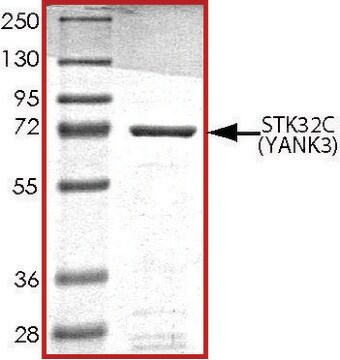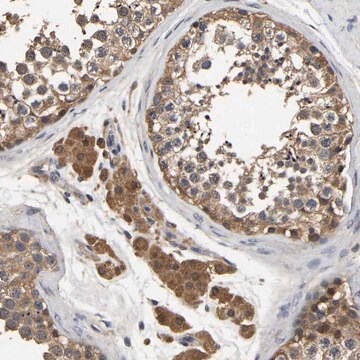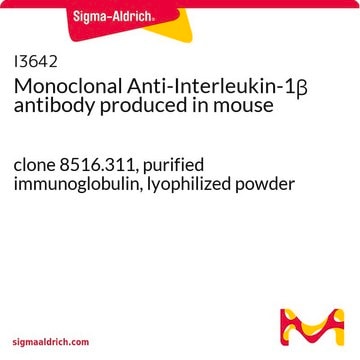SRP6307
BPI from human neutrophils
≥95% (SDS-PAGE)
Synonym(s):
BPI, Bacterial/Permeability, CAP57, Increasing Protein
Sign Into View Organizational & Contract Pricing
All Photos(1)
About This Item
UNSPSC Code:
12352204
NACRES:
NA.32
Recommended Products
General description
Bactericidal/permeability increasing protein (BPI) is a 456 residue protein which is part of the innate immune system. BPI was initially identified in neutrophils, but is found in other tissues including the epithelial lining of mucus membranes. It is an endogenous antibiotic protein with potent killing activity against Gram-negative bacteria. It binds to compounds called lipopolysaccharides produced by Gram-negative bacteria. Lipolysaccharides are potent activators of the immune system; however BPI at certain concentrations can prevent this activation. Bacterial/Permeability-Increasing Protein (BPI) is present in the azurophilic granules of polymorphonuclear leukocytes (PMN). BPI is toxic only toward Gram-negative bacteria. This specificity is attributable to the strong attraction of BPI for the lipopolysaccharides (LPS) in the bacterial envelope. BPI is also an important antigen for anti-neutrophil cytoplasmic autoantibodies (ANCA) in vasculitis.
Physical form
Frozen in 80 mM Citrate Phosphate, pH 5.6, 0.75 M NaCl.
Storage Class
13 - Non Combustible Solids
wgk_germany
WGK 3
flash_point_f
Not applicable
flash_point_c
Not applicable
Certificates of Analysis (COA)
Search for Certificates of Analysis (COA) by entering the products Lot/Batch Number. Lot and Batch Numbers can be found on a product’s label following the words ‘Lot’ or ‘Batch’.
Already Own This Product?
Find documentation for the products that you have recently purchased in the Document Library.
Maria K Magnusson et al.
Inflammatory bowel diseases, 23(6), 956-966 (2017-04-27)
The clinical disease course of ulcerative colitis (UC) varies substantially between individuals and can currently not be reliably predicted. The gut microbiota and the host's immune defense are key players for gut homeostasis and may be linked to disease outcome.
Our team of scientists has experience in all areas of research including Life Science, Material Science, Chemical Synthesis, Chromatography, Analytical and many others.
Contact Technical Service

![Sodium tetrakis[3,5-bis(trifluoromethyl)phenyl]borate](/deepweb/assets/sigmaaldrich/product/structures/251/439/7a621e74-bfd1-4a43-833c-09adfcc1e0b3/640/7a621e74-bfd1-4a43-833c-09adfcc1e0b3.png)






